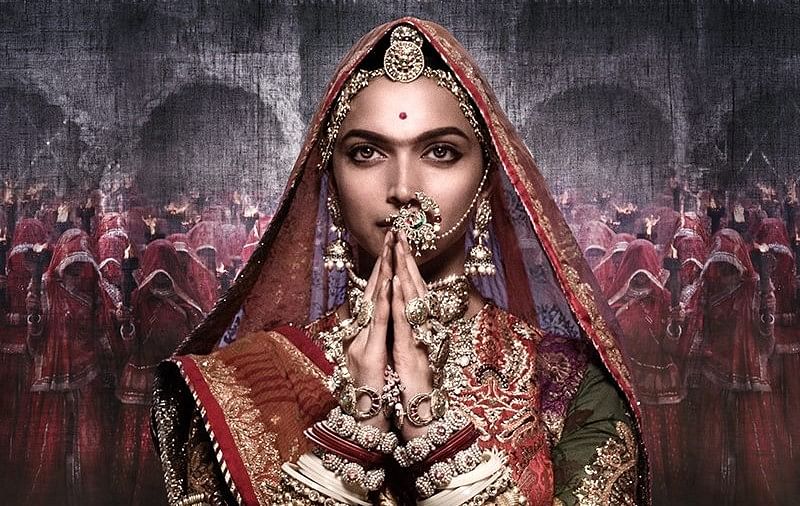The amazing tales of Rajput valour are what makes their losses palatable, and questioning the authenticity of these legends shows them that their best days are behind them.
There’s this scene in Toy Story, where Buzz Lightyear, the astronaut doll, is trying to prove to the other toys that he can fly. (Of course he can’t.) He takes a flying leap off a trampoline, goes up-up-up into the air and then, of course, falls, landing with a mighty thump, but manages to recover himself, strike a graceful pose and go Ta-da! The credulous toys are impressed.
‘He can fly!’ They murmur, awed.
‘That’s not flying!’ retorts the very fed-up cowboy doll Woody. ‘That’s falling with style!’
This according to me, is the special talent of us Rajputs. Right through my childhood, I heard tales of the several P’s – Prithviraj Chauhan, Panna Dai, Rani Padmini, Maharana Pratap. All of the stories were stories of amazing final stands, romantic lost causes, huge courage in the face of unsurmountable odds and death before dishonor.
All of them lost.
But man, did they lose with style. Prithviraj Chauhan was defeated and blinded and bought before Muhammad Ghori, but he turned his bow upon his enemy, unerringly following the sound of the hated voice, and dropped Ghori with a single arrow. Panna saved her prince, but lost her son. Maharana Pratap lost at Haldighati, but never surrendered. Rani Padmini and the women of Chittorgarh commited Jauhar, death was preferable to them, over dishonor and slavery.
Rajput pride is goose-bumpy stuff. It’s a heady mix of little Gaulish village against the might of Rome, 300 Spartans against the Persian Empire, all served up with lashings of the best Bollywood masala. Losing with style is romantic, cinematic and massively comforting to the survivors who have to live to hear the tale. It is no coincidence that Thakur Baldev Singh in Sholay is a Thakur. Who else could be that bloody but unbowed character, defeated, but still unbroken in spirit, a heap of bitter embers planning a raging fire of revenge be?
According to me, every wage-slave worm who finally turns, who flashes the hated boss the middle finger and quits to become a stand-up comic or open a river-rafting camp is channeling his inner Rajput.
Consequences be damned, is a very Rajput thought. So is never backing down. So is tilting at windmills. And of course, doing the straightforward thing. Our grandmothers taught us that Rajputs aren’t cunning and wily (like Muslims), or wordly-wise (like the Punjabis). So many Rajputs in the Indian Army and so few Chiefs of Staff – why? Mostly because we tend to tell our bosses to shove it, and hence don’t get promoted. Or we die in battle. Perhaps we aren’t even very smart (A headlong dash with no plan B, tends to be our usual war ‘strategy’). Perhaps we’re hotheaded and stupid. But that’s okay, even something to be proud of.
But we’re brave. Being brave is non-negotiable.
I remember this other Rajput story my grandmother told us as we huddled around her bed, about this random Rajput king who came back from war because he was too scared to fight. His wife, a docile woman with full ghunghat and downcast eyes, naturally could not criticise him, but that night, when the dinner was being prepared, she went into the kitchen and castigated the cook for banging the iron vessels together so loudly.
‘Don’t you know my husband is afraid of the sound of metal clashing against metal?’ she said in her gentle voice. Red faced and ashamed, he rose from the table, and rode right back into the battle. And died. And she commited sati. Such a happy (for Rajputs) ending!
And then there’s the other, equally grisly one about this love-struck, honeymooning king who didn’t want to go to battle and leave his bride behind in her nuptial bed. She kept telling him to go, and not be distracted, and so finally he did – but then he stopped outside the gates and sent a messenger back to her, bidding her to send him a senani (a love token, to be worn in battle, to remind you of your loved one) Exasperated at this unheroic, maudlin malingering man, she chopped off her head and thrust it at the messenger to give it to the king as a bloody senani.
Yeah.
It gets better.
Immediately sobered, and reminded of his real duty by this grisly gift, the king tied her head around his neck with her hair, and rode into battle. I can’t remember what happened after that. I think maybe he died. Heroically, of course.
These are the stories we heard at our grandma’s knees.
Which is why, our jodhpurs get into such a twist when people question the authenticity of our legends, like it is happening currently with the legend of Rani Padmini. See, what makes all the Rajput losses palatable, are the amazing tales of courage in the face of death that accompany them. Poke holes in those tales, belittle or question them, or dismiss them as fiction made up to console ourselves; and then we’re just… umm… pretty much a loser class, with our best days behind us, a heap of crumbling castles and some denting-painting mechanics businesses to run.
Just a sad bunch of not-very intelligent folk, falling without style.
So please don’t doubt our heroes are real, all you common people. They’re all we’ve got.
Anuja Chauhan is the author of “Those Pricey Thakur Girls”, “Battle for Bittora”, and “The Zoya Factor”.
